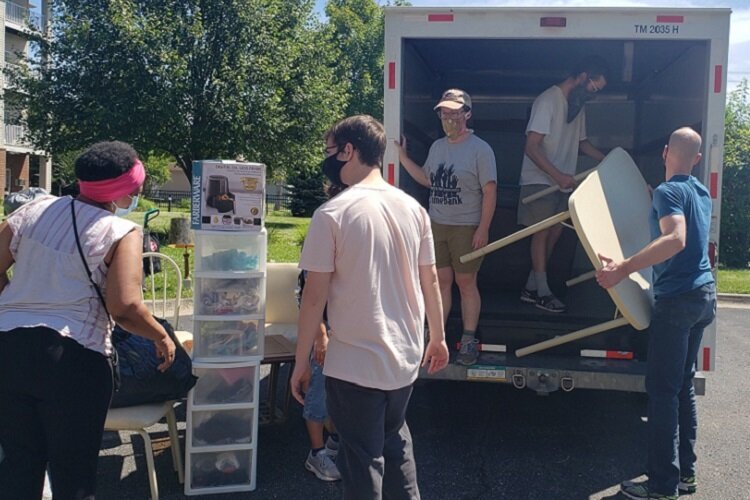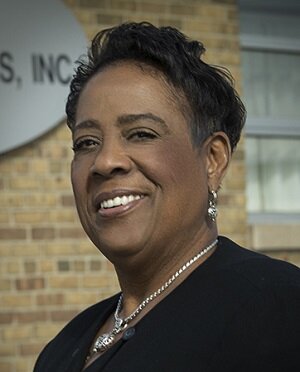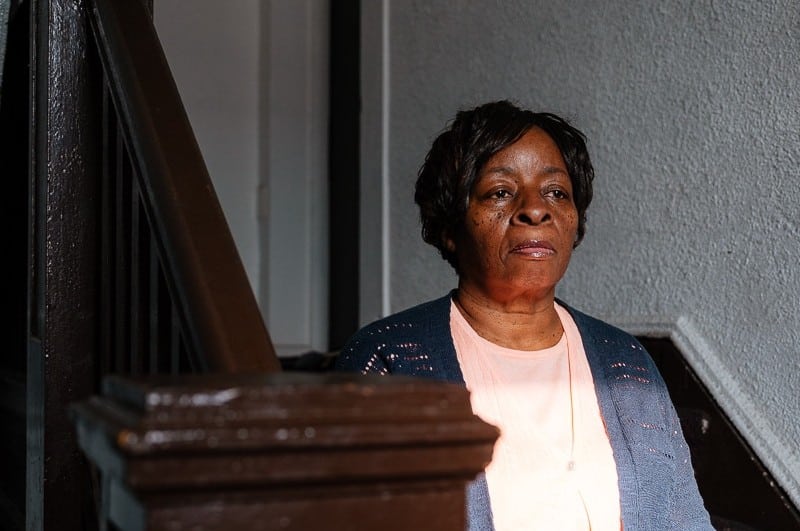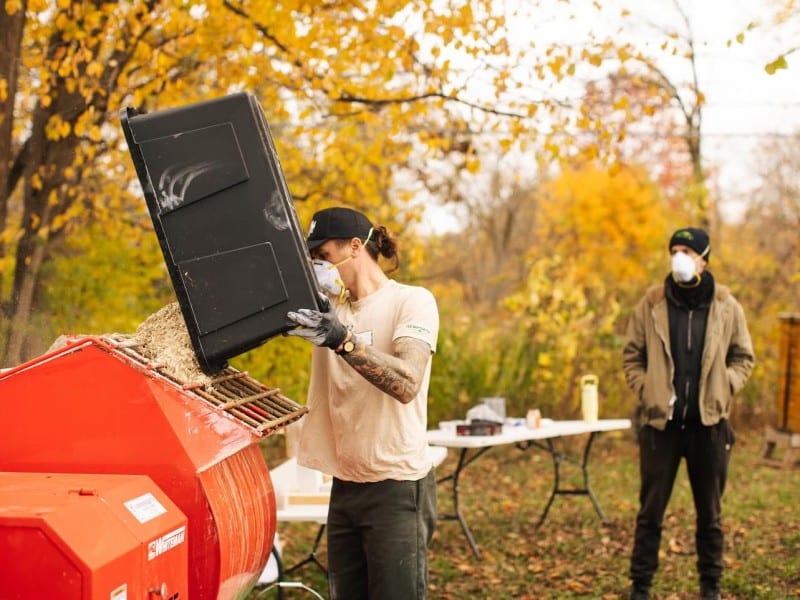Resilient Neighborhoods: Disastrous floods inspire SW Detroit nonprofit to pursue emergency planning
This Detroit nonprofit is looking into disaster preparedness planning
after summer flooding displaced a group of local seniors.

This summer’s heavy rainfall created major difficulties for Dorina Andrews, who lives at an apartment complex on Detroit’s Southwest Side. On June 25, runoff water from a powerful storm flooded Heritage Place at Magnolia, the senior living community at 3701 15th Street where she lives. The facility is located near the I-94 freeway, where pump stations designed to prevent flooding stopped

working at the time, due to power failures.
For Andrews, a retired recovery center worker, memories of that day are still fresh in her mind.
“My granddaughters were there, and they said, ‘Nana, there’s water everywhere,'” she says. “I turned the light on, and there’s water coming through the back wall behind my stove and refrigerator and into my kitchen — and it was sewer water. I called everybody I knew.”
The apartment complex was so inundated with storm water that Andrews and many of her first floor neighbors were forced to temporarily relocate. They were assisted in this effort by Bridging Communities, a local community development organization that serves Southwest Detroit with a focus on seniors and is a partial owner of Heritage Place at Magnolia.
“We were confronted with potential homelessness among our clients [there],” says Bridging Communities executive director Phyllis Edwards. “Fifteen residents were displaced. Some had somewhere to go but about 10 of them did not have anywhere to go.”
Although the complex’s management found rooms for them at the Doubletree

Suites hotel in downtown Detroit, their initial placement there was only supposed to last for 10 days. After that, the displaced residents contacted Bridging Communities for assistance, which ended up partnering with the City of Detroit, Wayne Metro Community Action Agency, United Community House Coalition, Congresswoman Rashida Tlaib and State Rep. Cynthia Johnson to find a solution.
The impromptu coalition worked out an agreement that allowed the seniors to stay at the hotel at reduced rates, while their apartments were repaired. Many of them stayed at the Doubletree until early October. Andrews, unsure how long she’d ultimately be able to stay, ended up temporarily moving in with her daughter in September and is now waiting to get her furniture back. While the situation was somewhat chaotic, she’s grateful for the assistance Bridging Communities provided to her and her neighbors.
“They did an exceptional job,” she says. “I’ve never been in a flood, so I didn’t know the formailites. They helped us stay as long as they possibly could. And when the funding ran out, they were advocating for us.”
Stormy Days Ahead
Storms hit Metro Detroit hard this year. There were four major flooding events this summer. The situation eventually became so bad that Southeast Michigan was declared a federal disaster zone, and a disaster recovery center was opened in Detroit.
Dr. Daniel Brown, a watershed planner with the Huron River Watershed Council and former climatologist with the Great Lakes Integrated Sciences and Assessments Center (GLISA) in Ann Arbor, doesn’t think the extreme rainfall Southeast Michigan experienced over the last few months were a fluke.
“The storms Detroit experienced this summer and early fall were almost certainly

amplified by climate change,” he says. “Climate change has been making our strongest storms more severe and more frequent since the middle of the 20th century.”
The shifts in the climate are being driven by warmer temperatures, which increase evaporation and hold more moisture in the atmosphere providing more fuel for storms. Citing the U.S. Global Change Research Program’s Fourth National Climate Assessment, Brown notes that the heaviest storms right now are delivering 42% more precipitation than they did in the past — and that extreme storms are becoming more common.
“At least four of the storms that hit the Detroit area were ’50-year storms,'” he says. “That means that based on historical observations we would expect a 2% chance of each of those storms occurring in a given year.
“In 2021, we had multiple storms exceed that rain amount. That’s a very clear indication that past observations no longer represent the climate we’re living in. The climate has changed. It will continue to change.”
Preparing for Disaster
For Bridging Communities, the need to respond to the June 25 storm didn’t just end when the rain stopped falling. It’s an ongoing process.
The nonprofit has been working with residents in its service area to apply for Federal Emergency Management Agency assistance and state relief. It’s also secured funding of its own to do rehab work as well.
But the organization is doing its best to prepare for other floods and unexpected disasters in the future as well. With funding from Honnold Foundation Community Fund, Bridging Communities installed solar panels at its headquarters this August. And with the assistance of Ryter Cooperative Industries brought solar charging stations with WiFi to the community it serves. The Pablo Davis Senior Living Center, which it owns, had its own solar array installed in 2019. While these improvements certainly help with energy efficiency and offer benefits to residents all year-round, they’re also bound to be helpful in situations where power may be unavailable to community members.
Bridging Communities is also continuing its efforts to advocate for better drainage infrastructure in its Southwest Detroit service area, which includes the neighborhoods of Chadsey Condon, Claytown, Springwells Village, and the 48217 ZIP code.
As the nonprofit’s director, Edwards is also passionate about developing an emergency preparedness plan for local residents.
“I know the city has an emergency response, but people don’t know what that emergency response is,” she says. “What seems to happen is when the emergency comes everybody’s just [acting] for themselves trying to survive. We want to make sure that our seniors and our children are taken care of in those emergencies.”
The sort of plan she envisions would address issues like the evacuation of seniors, emergency housing, access to resources, neighborhood-level planning and family-level planning. While this is an effort Bridging Communities is looking into on its own at the moment, the nonprofit also hopes to raise a broader discussion about

emergency planning. In fact, that topic will be the main theme next year at an October meeting of the Southeast Michigan Senior Regional Collaborative, a network of more than 30 nonprofits and public sector entities that includes Bridging Communities.
Brown is encouraged that organizations like Bridging Communities are taking steps to prepare for climate emergencies. He believes climate change is likely to expose vulnerabilities in our current infrastructure and lead to more flooding and power outages, as well as more bacteria in flooded basements that could have negative health impacts.
His advice to organizations looking to prepare for emergencies and other issues related to climate change is to think about the vulnerabilities and problems we’re seeing now and to consider how they may become worse in the coming years. In fact, he believes envisioning worst case scenarios may be the best way to identify the areas we need to be addressing right now.
In addition to that, the climate scientist recommends getting in touch with Michigan area climatologists and emergency management experts and other groups like the Red Cross that are working on these issues for support.
“There are many things groups like Bridging Communities can do,” says Brown. Perhaps the most important thing (in addition to what they’re already doing) is to keep building awareness of the effects of climate change. We have to get people and politicians to support addressing climate change. It is, without a doubt, the greatest issue facing our communities over the long term.”
For her part, Edwards is focused on having Bridging Communities address issues like these now, before disaster strikes again.
“We never know what the future holds, but we’ve seen some of the impact from climate change and from just natural disasters,” she says. “We should not just wait for something to happen, as we often do, and become reactive. My opinion is that we need to be proactive and put these things in place right now.”
Resilient Neighborhoods is a reporting and engagement series that examines how Detroit residents and community development organizations are working together to strengthen local neighborhoods. It’s made possible with funding from the Kresge Foundation.





